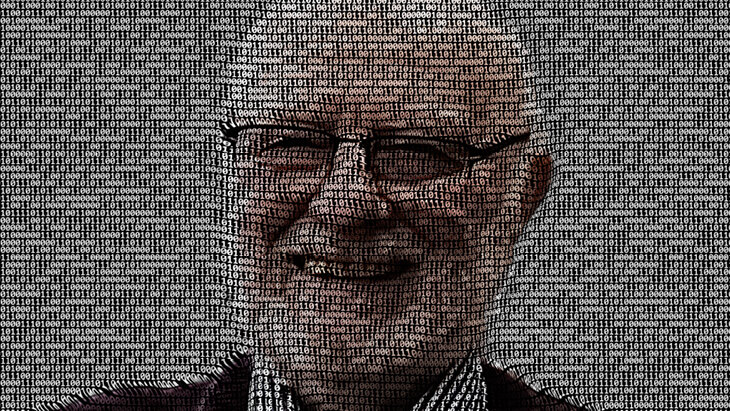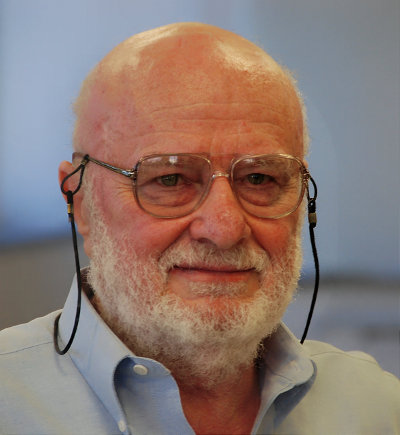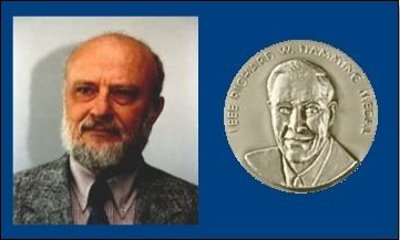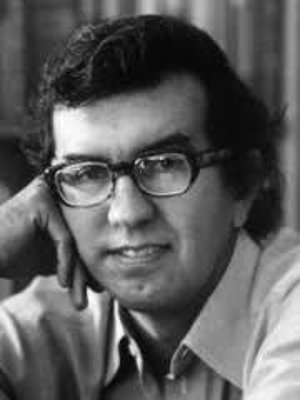 An Open Letter to University Presidents
An Open Letter to University Presidents


5 min read
Professor Abraham Lempel arrived in Israel as a 12-year-old orphan escaping WWII Europe and became one of the greatest minds of our century.
Was he a genius? Colleagues from the highest levels of the Israeli science scene say absolutely, yes. And a mensch, too.
Professor Abraham Lempel came to Israel as an orphan with a group of children who were rescued from Nazi-run Europe and then raised on a kibbutz for kids. Born in Poland, Lempel arrived in Israel at age 12. He then made his way through Israel’s most influential academic institutions, opened the HP Lab branch in Israel, collaborated with scientists in Palo Alto and ultimately published research on compression that led to the creation of Zip files.

He died Sunday, February 4th, 2023 just 6 days short of his 87th birthday. Those who were connected to him say his mind stayed sharp even in his advanced years.
Most of the world has benefitted from Lempel’s inventions. Have you used MP3 files? Seen a PNG? Worked with a Zip? Today, everyone uses these items on a daily basis. The concept of taking large pieces of data, storing it small for a short time and then opening it back into its original form comes from Lempel’s research and work in information sciences. Together with Israeli Professor Jacob Ziv, the two created and published the LZ77 and then the next year the LZ78. Many know it by its full name, the Lempel-Ziv algorithm. The data encoding technique formed the basis for a number of compression formats that today most people can’t live without. The algorithm influences the biggest tech companies, media departments and cell phone users until this day. One of Lempel’s revered strong suits was being able to move theory into application.
Had Lempel been held in Poland by Nazis, the world might have looked quite different. As a young child, Lempel moved from Poland to Siberia to Paris and was then rescued with a group of other Jewish orphans. His colleagues from the Technion say they don’t believe his parents survived the Holocaust, but didn’t hear much from him regarding his childhood. He always kept his focus on his profession.
When Israel became an independent state, he was moved to Kibbutz Yagur near Haifa. In 1959 the young man went on to become a student of electrical engineering at the Technion where he completed three degrees within eight years. Lempel then became a prominent staff member at the University. His colleagues and students were in awe of his intellect and humanity.

“He was a genius. He had a very good work ethic,” said Professor of Computer Sciences Tuvi Etzion. “He was a very sought after adviser, in very high demand. He taught me. He was very, very strict. He wanted to get every point and close every detail. That helped me later in my academic career.”
Etzion followed Lempel to the University of South California where the trailblazer was doing a post-doctorate with renowned American mathematician, Solomon Golomb. Etzion did the same.
“It was an era of giants. I'm not sure that in this era there are many today who are at the level of those people. Solomon Golomb [1932 - 2016,] was one of the greatest. There’s another. Jacob Ziv, who is still here with us,” Etzion remarked.
The professor says people use all kinds of compression technologies today without realizing Lempel was behind it, despite everyone in the academic world knows of him and his works.
In 1993, Prof. Lempel was recruited to work for Hewlett Packard and then went on to establish its first operation in Israel just a year later. He managed it until 2007. While working at HP, the company registered eight patents in his name in the United States. One of his former colleagues at HP, Ram Dagan manages the R&D section of the electronics department. Dagan met Lempel when his company, Indigo, was acquired by HP in 2002. Today it is called the HP Indigo Division.“I knew about him way before I had the chance and privilege to work with him,” Dagan told Aish.com.
Lempel was a part of the acquisition. He and his team approached Dagan about the business and worked to incorporate the company as a full division within HP Labs Israel.
“It was very kind. We are all Israelis and they wanted us to be a successful part of HP. We continued to cooperate and manage both in Israel and the U.S., in Palo Alto. Very extremely smart people. Very professional. Of course, with him as the leader,” Dagan said.
Today, HP Israel has 3,000+ employees. Dagan says, however, the culture isn’t quite the same. “Unfortunately there are less and less people like Abraham Lempel. The legacy that still exists, however, is the inspiration to research, to get to the bottom of issues, to explore and to be curious… to make a better place, or to use inventions for a good cause.”

Dagan says Lempel was extremely professional, humble and “ego-free,” chalking up his success to an abundance of patience and people skills.
“He understood the challenges and could explain things many times until we could understand. He was always very willing to share his vast knowledge with othersas a colleague, as a partner,” Dagan said.
When asked what he thinks society should take away as lessons from Lempel, Dagan says to first be a human no matter your degree or achievement. Professor Etzion from the Technion says it’s to identify the target, stick to it and then get it.
Lempel leaves behind four children and grandchildren. His wife passed on two years prior.
